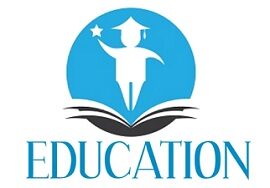
Succeeding in your first year of college: the major difficulties to face
was not expecting that at all !” Too many students arrive in law school, psychology or science without really knowing what the lessons consist of . They vaguely like a subject in high school, and embark on a course that turns out to be much more specialized or more arid than they thought. Sammy, 25, had enrolled in law to become an international lawyer but was totally blocked by the rigor of the exercises, the civil code to be learned by heart, the overloaded schedules.
Other students become demotivated because they have no career plans . When the difficulty is there, they find it more difficult to persevere in studies for which they do not see the opportunities. The result ? Disappointment,
What to do ? Anticipate from high school to build a project. In terminale, find out very precisely about the studies in college envisaged by taking advantage of the device of the active orientation . Explore the types of opportunities available. Consult the programs, if possible go to attend first-year courses and visit the university (which more and more establishments offer).
Half of the universities offer a ten-hour Teaching Unit (UE) called the Student Professional Project (PPE). You are offered to investigate the professional sector that interests you. Since the 2008 reform, all universities must also have a “professional integration office” in particular to offer internships. Finally, changes of orientation are still possible during the first semester
Attendance: avoid the cafet syndrome
In college, most lessons are given in “lectures” (CM) in front of all the students in large amphitheatres. Sessions of application or deepening exercises take place in tutorials (TD) in groups of about thirty. However , attendance at lectures , which are quite difficult to follow, is not controlled . It’s tempting not to attend, especially since classes may be available online or in handouts. What to do ?Do not allow yourself any absence, at least during the first trimester, the time to discover the teachings, to check that you are at the level and to set up your personal work. Even if the course content is online, start by going to the course, as this allows you to start memorizing, then complete with other materials (Read Taking a lecture effectively ). Finally, take advantage of all the work time in small groups that your university offers: tutoring, support groups, meeting with your “referring teacher”… The reform of the university has put the package on this supervision: it is absolutely necessary use it!
Expression, spelling, English: master the basic tools
The student is supposed to have a good command of the French language (spelling, grammar), even English, and the basic tools of his discipline. On the other hand, we expect him to have a minimum of experience in terms of reasoning and expression: knowing how to write a summary, make a synthesis, a dissertation, know how to organize ideas and handle abstract concepts . “It is useless whatever the sector to persevere if these fundamentals are not there”, considers Jean-Claude Topund, teacher.
What to do? Do not register for a general license in college if you are weak on all these grounds. Otherwise, from the start of the first year, clearly identify your weaknesses (spelling? Written expression? General culture? Literary culture? Scientific? IT?) and develop a special work programto fill them (grammar exercises, spelling, reading program, subscription to certain magazines, written expression courses, etc.). Find out about the help you can find at university: if tutoring exists, take a tutor , an older student who can guide you on certain techniques (dissertation, reading sheets, note taking in class, etc.). Sign up for optional Teaching Units (UE) that could help you fill in your gaps (age culture, French, etc.). If your difficulties persist, quickly consider a reorientation towards a less traditional course (type BTS).
The level to have: do not kid yourself
The bac certainly gives you access without selection to the university. But be careful: if your level is too average, you risk failing because the bar to be crossed in the first (or even second) year will be too high. Learning will indeed increase in quantity and complexity. A student who repeated her first year of English in Amiens says: “Coming from the professional technological path but being bilingual thanks to my family, I passed the practice UVs perfectly but I literally crashed the UVs asking for a volume important learning”.
A teacher does not cut corners: “Having grades equivalent to 10/20 in the final year is not enough, is NEVER enough. Why? You will be 200 in a promotion in the first year and 50 in the third year. Competitiveness is more important than in a big school”.
What to do ? To find out if you have the level, in final year, take part in the active orientation procedurewhich is organized by the universities from January. You fill out a file with your reports, and indicate your professional project. An interview may be offered. Teachers will examine your file and tell you if they think you made a good choice, that is to say if you have a good chance of success or not. If they consider your file insufficient, they will advise you to register for another course. And after that ? It’s just an opinion. You are free to register anyway]b if you want to try your luck, but beware of failure. Better to follow the advice of those who know the requirements of their industry.


